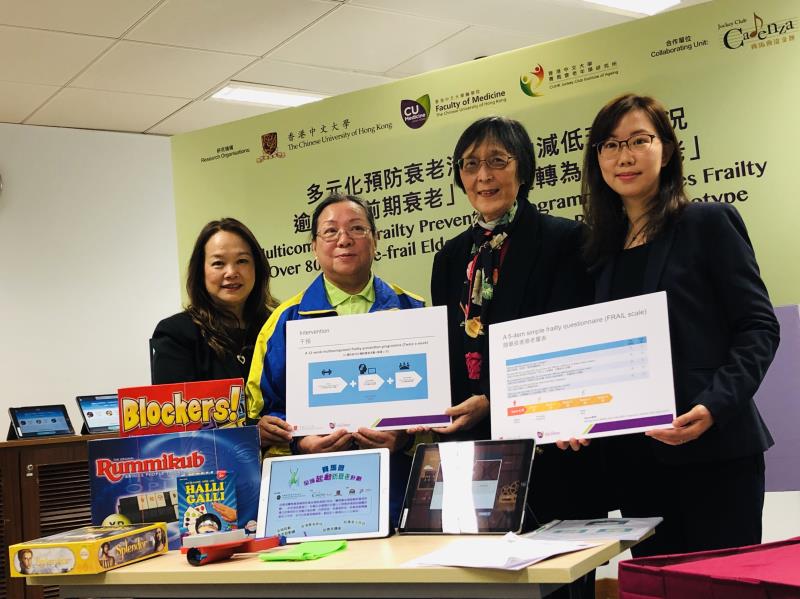
Prefrailty can be reversed with multicomponent intervention consisting of exercise, cognitive training and board games, a study by the Chinese University of Hong Kong (CUHK) has shown.
“Following completion of the 12-week multicomponent frailty prevention programme, 83.3 percent of prefrail older adults became robust. Reversal of prefrailty phenotype was observed in only 1.6 percent of participants in the control group [between-group difference, p<0.001],” reported investigator Dr Ruby Yu of CUHK Jockey Club Institute of Ageing. [J Am Med Dir Assoc 2019, doi: 10.1016/j.jamda.2019.08.024]
The study was conducted between November 2017 and September 2018 among 127 prefrail community-dwellinig older adults (mean age, 62.2 years; 88.2 percent female) recruited from a community elderly centre. The participants, with a score of 1–2 on the five-item simple frailty questionnaire (FRAIL) at baseline, were randomized to an intervention group or a control group.
Participants in the intervention group underwent a 12-week programme consisting of twice-weekly 2-hour sessions of aerobic and resistance exercise (60 minutes), computer-assisted cognitive training (30 minutes), and board games (30 minutes).
The primary outcomes of the study were FRAIL scores, frailty status, and a combined frailty measure including subjective (FRAIL total score) and objective (grip strength, muscle endurance, balance, gait speed) measures.
At 12 weeks, participants in the intervention group showed an improvement in FRAIL score (-1.3 points; p<0.001), while those in the control group showed a deterioration (+0.3 points; p<0.01) (between-group difference, p<0.001).
“After the intervention, the proportion of participants with low muscle endurance or poor balance decreased significantly, by 70.8 percent and 89.5 percent [p<0.001 for both], respectively. The combined frailty assessment score improved by 36.4 percent [p<0.001] in the intervention group,” reported Yu.
In contrast, in the control group, there was a 28.6 percent increase in the proportion of participants with low muscle endurance and a 17.6 percent decrease in those with poor balance after 12 weeks. The combined frailty assessment score deteriorated by 3.1 percent.
“Participants in the intervention group also showed significant improvements in attention and working memory [4.8 percent; p<0.01], as well as executive function [13.8 percent; p<0.001], with a 34.8 percent decrease in fair or poor self-rated health [p<0.01],” said Yu. “In the control group, there was a small decrease in attention and working memory [1.4 percent], with no change in executive function, and an 8.2 percent decrease in fair or poor self-rated health.
“Importantly, the programme’s adherence rate was high, exceeding 90 percent. A majority of participants said that the programme had a positive impact on their health and well-being,” said Professor Jean Woo, Director of CUHK Jockey Club Institute of Ageing. “Some have continued participating in the programme for several years.”
In Hong Kong, more than 60 percent of adults aged ≥65 years are prefrail or frail. “With our ageing population and the known adverse outcomes associated with frailty, strategies that can prevent or delay its onset are vital,” suggested Woo. “Prefrailty provides an opportunity for intervention in the community. The multicomponent frailty prevention programme, which is popular among the participants, can be implemented by NGOs in community settings to keep people healthy.”